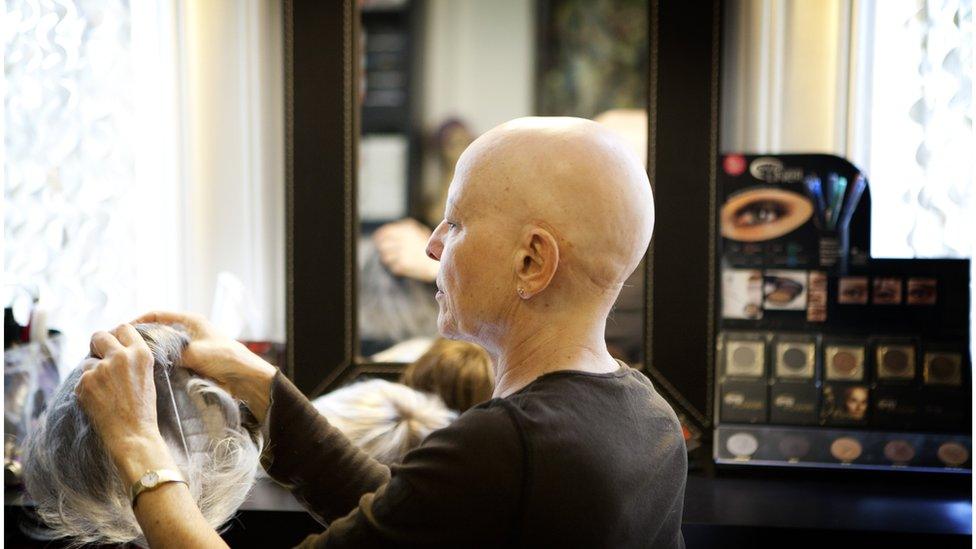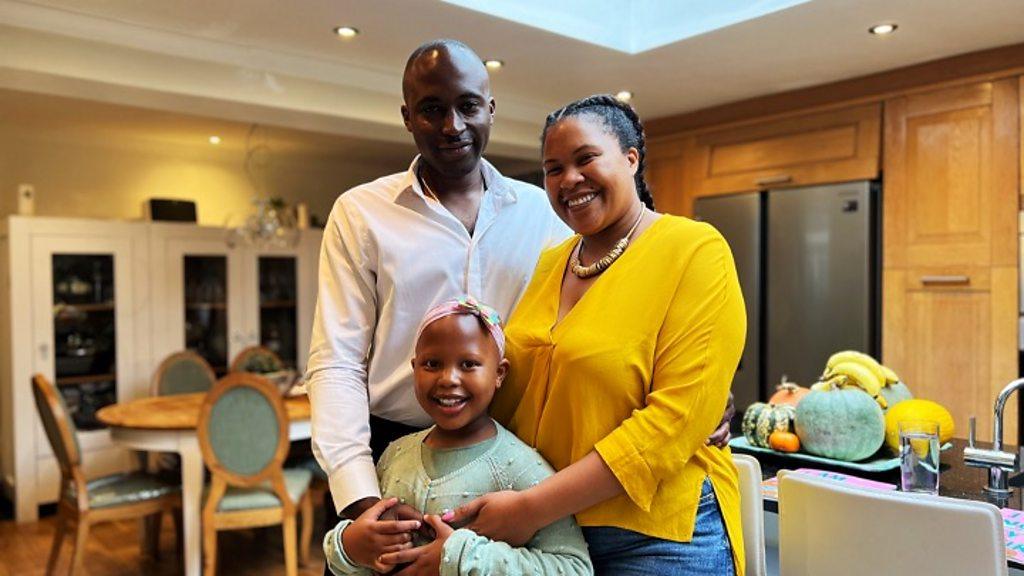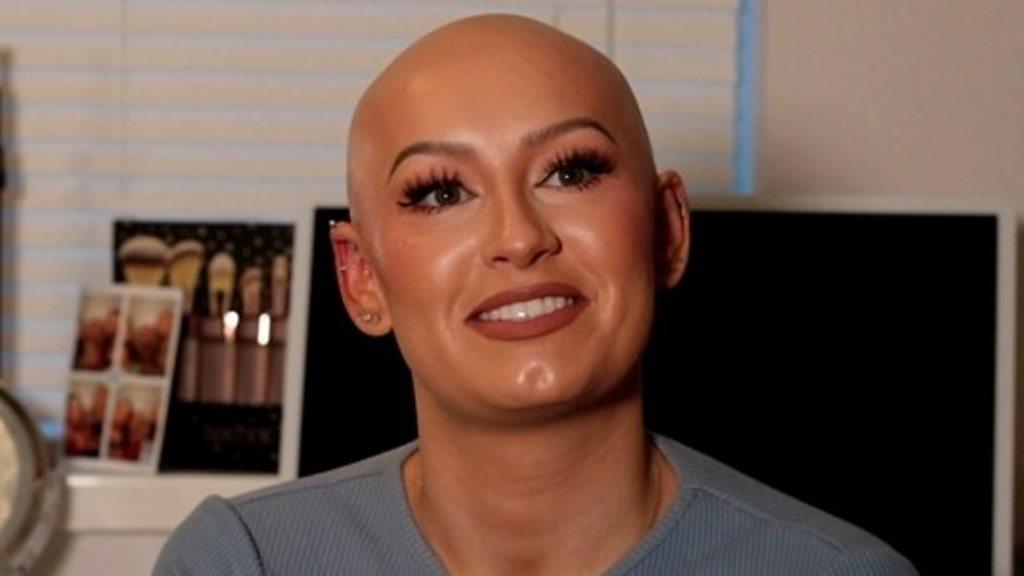Alopecia: Hair loss medicine to be offered by NHS Wales
- Published

Brittany Hardaker, 26, says she does not leave the house without a wig
A woman with alopecia has welcomed approval for a new hair loss medicine on the NHS in Wales.
"This is amazing news," said Brittany Hardaker, 26, who was diagnosed with alopecia when she was 12 and does not leave the house without her wig on.
She said: "People are mean, they stare and comment. It goes without saying I would jump at the chance to try this."
The daily pill has been approved by drug body NICE for hair loss caused by autoimmune disease.
Called Ritlecitinib or Litfulo, it could help thousands of people dealing with severe hair loss or alopecia.
The Welsh government has confirmed the drug will be available in Wales.
A spokesperson said: "Once Ritlecitinib launches in the UK, health boards will be required to make this treatment routinely available to eligible patients in Wales within 60 days, as per the terms of the New Treatment Fund."
Both Wales and England will offer it on the NHS for those who certify, while Scotland has said it is currently considering offering it on the NHS too.
Licensed for people aged 12 and over, the drug helps fight inflammation to improve hair growth.
Alopecia areata is an autoimmune disease where the body's immune system attacks the follicles of the hair, causing it to fall out.

"We've waited long enough," says Brittany Hardaker, who has tried everything to prevent hair loss since her teens
Brittany, from Abergele, Conwy, said she tried everything in her teens to try to reverse her hair loss, from steroid injections to UV light therapy, but none of it worked.
"I was a teenage girl losing all of my hair, I wouldn't wish anyone to go through that," she said.
"If I had a daughter I would hate for her to go through it. I'm not myself without my hair, it's a part of me.
"I believe it should be offered to anyone, anywhere, who has alopecia," she said. "We've waited long enough.
"It's often as though because you're not physically sick, it gets pushed away and forgotten about but it affects so many people mentally."
The National Institute for Health and Care Excellence (NICE) initially rejected the drug last year but has now reversed its decision following a public consultation, as well as receiving more information about it, including a reduced price from the manufacturer Pfizer.
Helen Knight, director of medicines evaluation at NICE, said: "Our committee heard how severe alopecia areata can have a significant impact on people's health and quality of life.
"I'm delighted that we are now able to recommend this innovative treatment."

QUEERLY BELOVED: Sam and Shauna explore same-sex marriage in Wales
THE LEARNERS IS BACK: It's a new term for Jonesy's merry band of students

- Published8 September 2023

- Published29 March 2022

- Published19 November 2018

- Published12 September 2020

- Published23 November 2021

- Published26 October 2022
